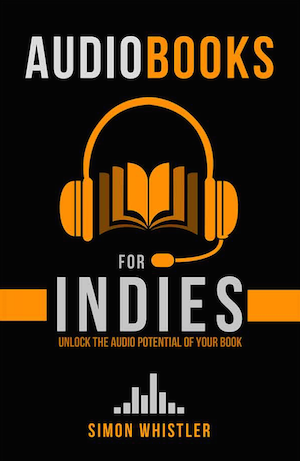 I’ve been listening to the Rocking Self-Publishing podcast for over a year now. While I’m not currently self-publishing, it is in my plans to do so in 2015 as a way to broaden my distribution channels. Many of the guests he interviews have great information whether your self-pubnlishing or working with a publisher.
I’ve been listening to the Rocking Self-Publishing podcast for over a year now. While I’m not currently self-publishing, it is in my plans to do so in 2015 as a way to broaden my distribution channels. Many of the guests he interviews have great information whether your self-pubnlishing or working with a publisher.
A topic that comes up often on the podcast is audiobooks. I’m fascinated by audiobooks because it’s another way to get books out into the world. I know personally several authors who have audiobooks out, either from their publishers or that they’ve worked independently to produce. And there are others who are leaping into the space. I have to admit that it would be way cool to have someone put an actual voice to Hat Trick‘s Simon.
So, when there was the chance to get an advance copy of Audiobooks for Indies: Unlock the Audio Potenital of Your Book by RSP’s Simon Whistler, I leapt at the chance to get the scoop on all things audiobooks. (Yes, full disclosure: this was a free copy of the book provided for an honest review.) I’m glad I got it. It’s opened my eyes that there’s a lot more to audiobooks than signing up for ACX (Amazon’s Audiobook Creation Exchange), clicking a few times and letting the sales begin. Actually, as a process it’s easy, but where this book is invaluable is that it highlights the business strategy behind why you should, or should not, produce an audiobook.
Audiobooks for Indies is written so it can serve two purposes: as an overall introduction for people new to the idea of audiobook production and as a reference you can return to anytime you need to know more, or have a question, about a particular part of the process. As a newbie, the upfront chapters were packed with much needed information, especially the “Should I Create an Audiobook Chapter?” along with a breakdown of the ACX options for royalty share and paying upfront for production. Whistler packs these chapters with not only his own experience (he voices and produces books himself), but also with authors who have used the various methods to produce audiobooks. There are also links to helpful websites and documents. I loved some of the Excel worksheets that can help you figure out if you’re making the right investment. The marketing and finance sections, as well as how to work with the narrator will be sections I return to when I take the plunge.
While the entire book was informative, some of it didn’t apply to me right now (and may not ever) with topics like audio theatre (usually multiple narrators with sounds effects and music), voicing my own recording (I doubt anyone needs to hear that), and using multiple narrators (so each character has a voice). This was all still good stuff to know.
The timing of this book was spot on for me, giving me the information I needed to make an informed decision (which, for now, is actually not to plunge into the audiobook market). I’ll keep an eye on how the market, and my own author platform, evolves in the coming months and will re-evalaute form time-to-time. I’m sure I’ll be returning to this book for advice when I do.

Jeff – thanks for such a great review on Audiobooks for Indies, I hope as you branch out in the self-publishing world, that it proves useful 🙂